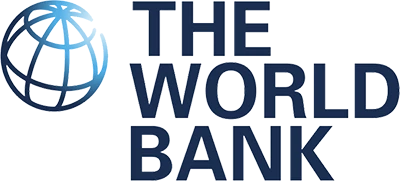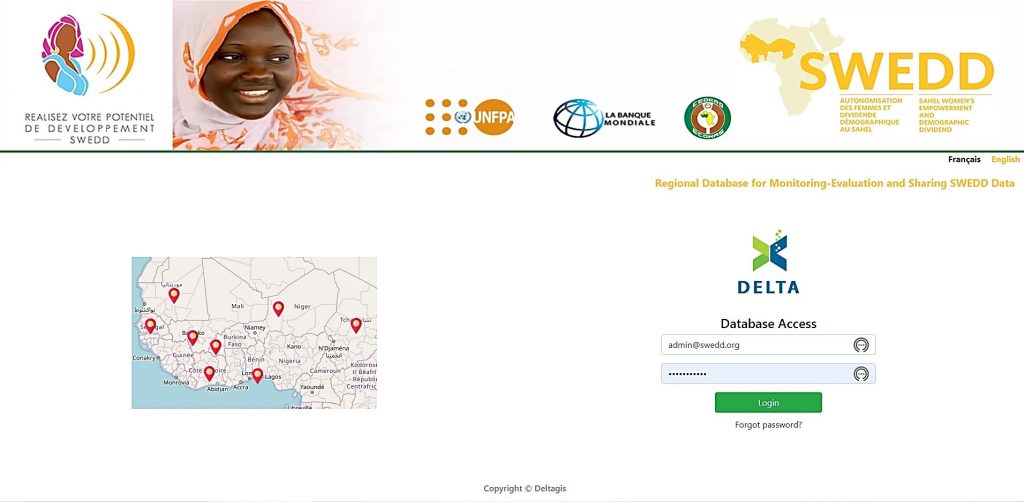Sahel Women’s Empowerment and Demographic Dividend Project (SWEDD) - UNFPA Senegal
Improving M&E Processes with Delta Monitoring
The Sahel region of West Africa experiences substantial poverty and inequality, which obstruct social progress and economic development. The situation is worsened by repeated conflicts, disease outbreaks, natural disasters, and persistent gender disparities.
With the threats of hunger and enforced migration, women and girls are especially vulnerable. While economic advancement is crucial for the region, it is hindered by swift population increase and elevated fertility rates.
The Sahel Women’s Empowerment and Demographic Dividend (SWEDD) initiative, led by the World Bank, aims to confront these problems by hastening the demographic shift and diminishing gender disparities.
The overall goal of the project is to accelerate the demographic
transition, to spur the demographic dividend, and to reduce
gender inequality in the Sahel region.
Challenge
The Sahel Women’s Empowerment and Demographics Project (SWEDD), a major regional initiative backed by the United Nations and the World Bank Group, is aimed at boosting the empowerment of women and adolescent girls to accelerate the demographic transition in Western, Central, and Southern regions. This massive project is implemented with the financial and technical support of prominent institutions such as the World Bank, the United Nations Population Fund (UNFPA), and the West African Health Organization (WAHO).
In the process of monitoring and managing the diverse interventions across different regions, the Project Management Units of each country produce a vast amount of information that needed to be processed, analyzed, and made accessible to stakeholders.
The Regional Project Coordination also manages financial information for all the countries, compounding the complexity of data management as the project continues to scale. The challenge was therefore to streamline and enhance data management, sharing, analysis, and stakeholder communication at a regional level.
Solution
To overcome these challenges, the SWEDD Regional Technical Secretariat adopted the Delta Monitoring solution, a powerful Monitoring and Evaluation (M&E) software tool. Delta Monitoring was used for:
- i) conducting project monitoring and evaluation,
- ii) sharing information effectively among various parties, and
- iii) facilitating efficient communication between different stakeholders.
Outcome
With Delta Monitoring, an advanced and user-friendly M&E solution, the SWEDD project was able to streamline the processing and analysis of its vast amount of data. The software allowed for easy access and sharing of information among the different stakeholders, promoting transparency and collaboration across all countries involved in the project.
The implementation of Delta Monitoring also significantly improved the efficiency of communication between various stakeholders, allowing for prompt action and decision-making. The ability to access and understand project data in real-time facilitated improved oversight and enabled the various project teams to identify potential issues early, allowing for more proactive management and thus, successful project outcomes.
Financial data management, which was particularly challenging due to the scale of the project, was made far more manageable with the Delta Monitoring solution. With the software’s financial tracking capabilities, the project team could keep a close eye on financial operations across all countries, ensuring that funds were utilized effectively and appropriately.
Conclusion
The successful application of Delta Monitoring in the SWEDD project underlines the vital role a comprehensive M&E solution can play in large-scale development projects.
By enhancing data processing, analysis, sharing, and stakeholder communication, Delta Monitoring helped the SWEDD project operate more efficiently and transparently, thereby contributing significantly to the successful empowerment of women and girls across the Western, Central, and Southern regions.
Summary
Challenge
The Sahel Women’s Empowerment and Demographics Project (SWEDD) encountered significant challenges in handling the vast amount of data produced from monitoring and managing various interventions across different regions.
The complexity was further compounded by the additional financial data managed by the Regional Project Coordination for all the countries involved. The major challenge was to streamline data management, analysis, sharing, and stakeholder communication at a regional level, especially as the project continued to scale.
Solution
The SWEDD Regional Technical Secretariat implemented the Delta Monitoring solution to tackle their data management challenges. This comprehensive Monitoring and Evaluation (M&E) software was used to conduct program monitoring and evaluation, effectively share information among different parties, and facilitate efficient communication between various stakeholders.
Outcome
The implementation of Delta Monitoring significantly streamlined the processing and analysis of the vast data involved in the SWEDD project.
The advanced M&E software enabled easy information sharing and improved communication efficiency among stakeholders, leading to prompt decision-making and proactive management.
Additionally, the integrated financial tracking capabilities made managing financial data across all countries much more manageable, ensuring effective utilization of funds and contributing to successful project outcomes.



RESOURCES
CONTACT
- contact@delta-monitoring.com
- (+1) 514 779 1591


